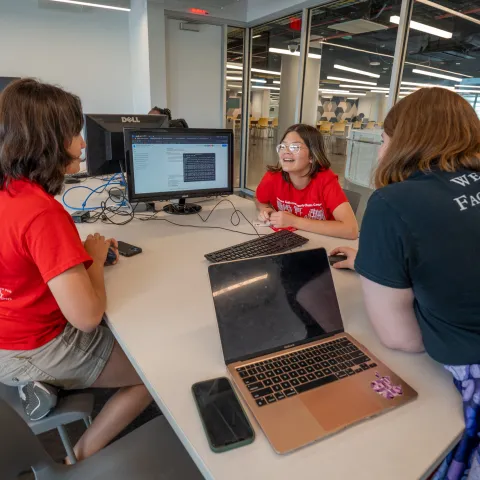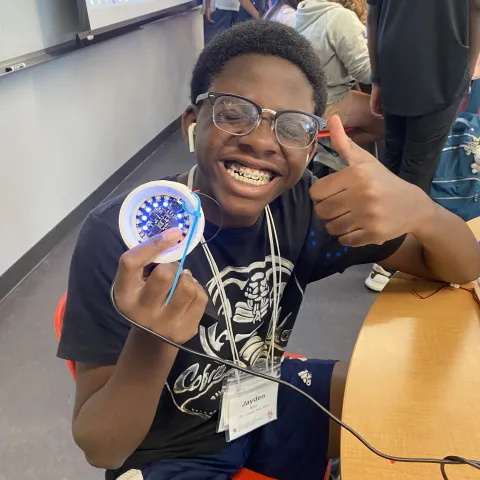TRAILS AI Summer Academy
Update
Due to limited capacity, TRAILS AI Summer Academy will not be running in 2025. Stay tuned!
The TRAILS AI Summer Academy is a two-week, nonresidential computer programming and artificial intelligence summer camp for rising 10th, 11th and 12th grade students at the University of Maryland. Students learn how AI can be used to help people and an idea of what kinds of careers there are in AI. Accepted students will have to complete ~25 hours of asynchronous content prior to the start date.
Participants explore the field of AI through team projects, industry field trips and presentations from guest speakers.
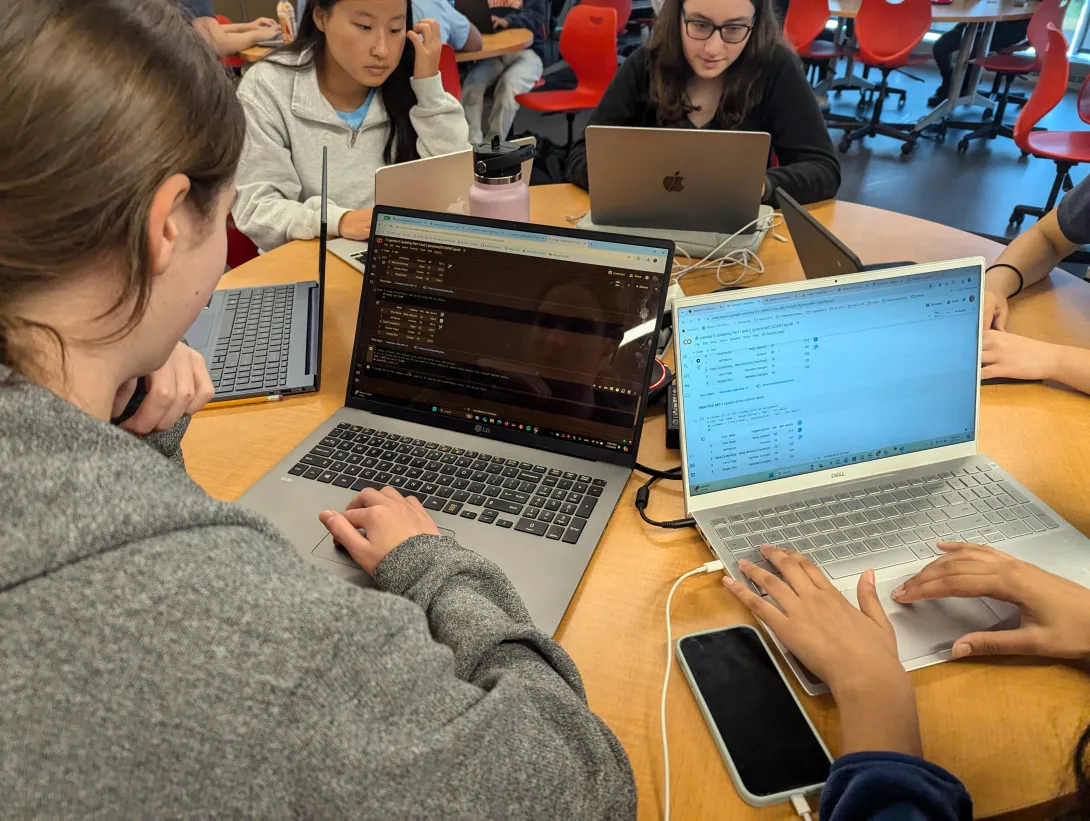

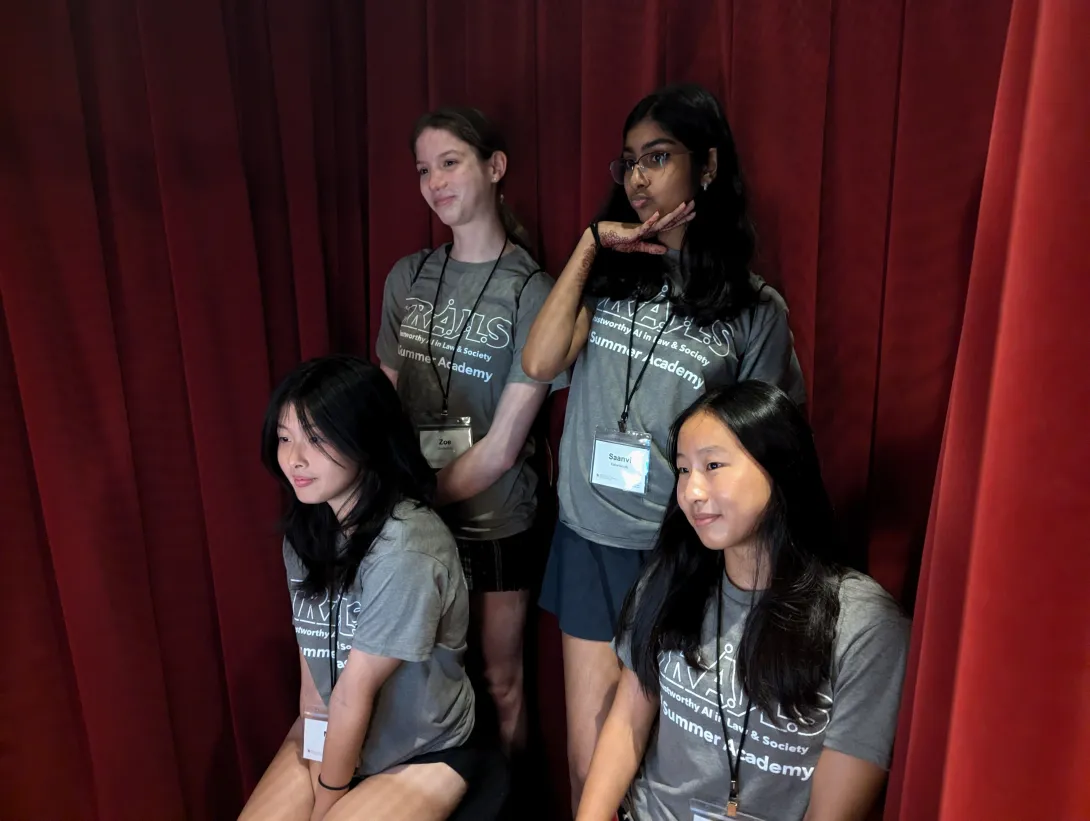
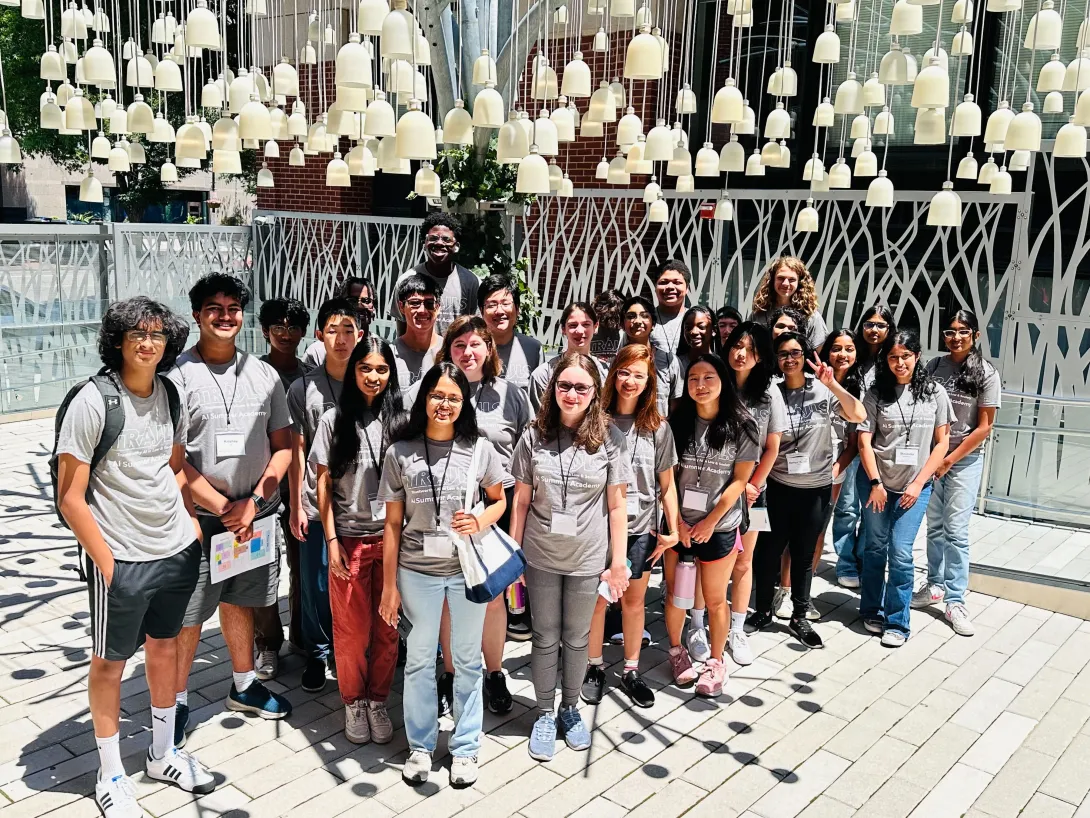
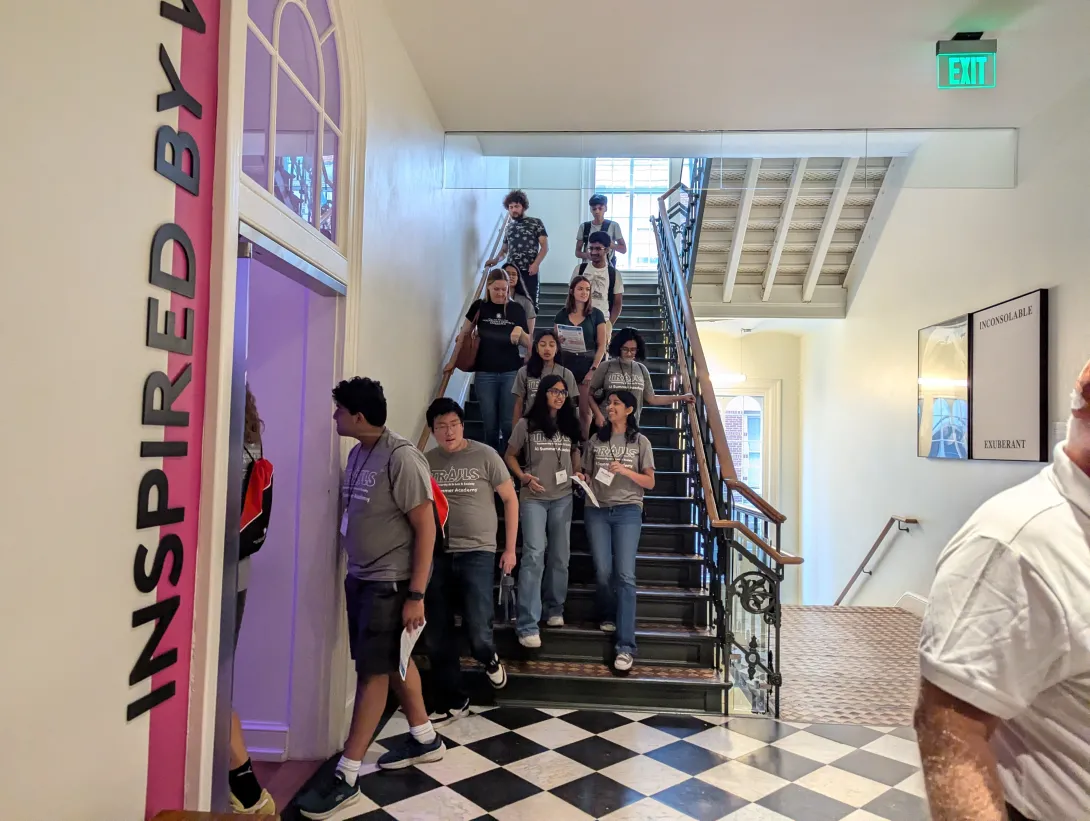
Frequently Asked Questions
The cost to attend this program is $600. This fee covers access to our learning management system to complete asynchronous learning, program materials and activity costs. Please do not include the fee at the time of application. The fee is due upon acceptance to the program.
Financial assistance is available for those experiencing hardship. I4C offers a need-based scholarship—email i4c_k12@umd.edu to learn more.
Here is the schedule for a typical camp day:
9 a.m–12 p.m. Classroom Instruction*
12:15–1:15 p.m. Lunch
1:30–4:30 p.m. Classroom Instruction
*Field trips and guest speakers are scheduled during Classroom Instruction time blocks.
Lab meetings take place in the Brendan Iribe Center for Computer Science and Engineering.

